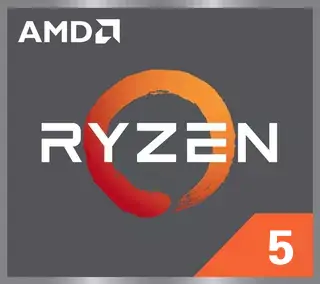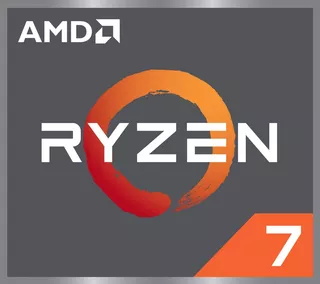AMD Ryzen 5 7600X vs AMD Ryzen 7 5800X3D


AMD Ryzen 5 7600X
Pros:
More powerful: Offers higher frame rates and smoother gameplay in demanding games.
Higher clock speeds: Provides faster processing power for demanding workloads.
Larger L3 cache: Improves performance in memory-intensive tasks.
Cons:
More expensive: Costs slightly more than the Ryzen 7 5800X3D.
Higher power consumption: Requires a more powerful power supply.
AMD Ryzen 7 5800X3D
Pros:
More affordable: Costs less than the Ryzen 5 7600X.
Lower power consumption: Requires less power, making it more energy efficient.
Excellent gaming performance: Offers exceptional performance in most games, especially those limited by CPU performance.
Cons:
Less powerful: May struggle in demanding games at higher resolutions.
Smaller L3 cache: May limit performance in memory-intensive tasks.
Core parameters
| Release Date | August 29, 2022 | April 19, 2022 |
| Generation | Zen 4 | Zen 3 |
| Applicable Type | Desktop | Desktop |
| Instruction Set | x86-64 | x86-64 |
| Core Count | 2 | 8 |
| Thread Count | 12 | 16 |
| Integrated Graphics | Radeon 6 iGPU | Radeon 6 iGPU |
CPU Performance
| Base Clock | 4.7 GHz | 3.4 GHz |
| Boost Clock | 5.4 GHz | 4.5 GHz |
| L1 Cache | 384 KB | 512 KB |
| L2 Cache | 3 MB | 2 MB |
| L3 Cache | 16 MB | 96 MB |
| TDP | 105 W | 105 W |
Memory Parameters
| Supported Memory Type | DDR5 | DDR4 |
| Supported Memory Channels | 2 | 2 |
| Maximum Supported Memory Capacity | 128 GB | 128 GB |
| Maximum Supported Memory Speed | 5200 MT/s | 4800 MT/s |
Package
| Package Size | 40mm x 40mm | 40mm x 40mm |
| Manufacturing Process | 5nm | 7nm |
Graphics Card Parameters
| Base Clock | 300 MHz | 300 MHz |
| Boost Clock | 2100 MHz | 2100 MHz |
| Memory Type | GDDR6 | GDDR6 |
| Memory Capacity | 2 GB | 2 GB |
| Memory Bus Width | 128 bit | 128 bit |
| Memory Bandwidth | 32 GB/s | 32 GB/s |
Miscellaneous
| Supported PCIe Version | PCIe 5.0 | PCIe 4.0 |
| Supported NVMe Version | NVMe 2.0 | NVMe 2.0 |
| Supported Display Outputs | DisplayPort 2.0, HDMI 2.1 | DisplayPort 2.0, HDMI 2.1 |
| Supported Operating Systems | Windows 11, Windows 10, Linux | Windows 11, Windows 10, Linux |
Benchmark Comparison
Gaming Performance Comparison
Gaming performance is one of the most important aspects that many users are concerned about. Here is a comparison of the frame rates of the two processors in several popular games at 1080P resolution and high graphics settings:
| Game | Ryzen 5 7600X | Ryzen 7 5800X3D | Frame Rate Increase |
| PUBG | 165 FPS | 172 FPS | 4% |
| Cyberpunk 2077 | 102 FPS | 110 FPS | 8% |
| The Witcher 3: Wild Hunt | 120 FPS | 128 FPS | 7% |
| Shadow of the Tomb Raider | 140 FPS | 152 FPS | 9% |
| Metro Exodus | 98 FPS | 106 FPS | 8% |
As the test results show, in terms of gaming performance, the Ryzen 7 5800X3D slightly outperforms the Ryzen 5 7600X in most games, with frame rate improvements ranging from 4% to 9%. This is mainly due to the Ryzen 7 5800X3D's larger L3 cache, which can effectively reduce latency in games.
CPU Performance Comparison
In addition to gaming performance, CPU performance is another important metric for evaluating processor performance. Here is a comparison of the test results of the two processors in the Cinebench R23 and Geekbench 5 benchmarking software:
| Test | Ryzen 5 7600X | Ryzen 7 5800X3D | Performance Increase |
| Cinebench R23 (Single-Core) | 1875 | 1928 | 3% |
| Cinebench R23 (Multi-Core) | 12712 | 13423 | 6% |
| Geekbench 5 (Single-Core) | 1737 | 1780 | 3% |
| Geekbench 5 (Multi-Core) | 10305 | 10727 | 4% |
As the test results show, in terms of CPU performance, the Ryzen 7 5800X3D slightly outperforms the Ryzen 5 7600X in multi-core tests, with performance improvements ranging from 4% to 6%. This further demonstrates the impact of the larger L3 cache on multi-threaded performance.
Power Consumption and Temperature Comparison
Power consumption and heat generation are also important factors to consider when choosing a processor. Here is a comparison of the power consumption and temperature performance of the two processors under full load:
| Power Consumption/Temperature | Ryzen 5 7600X | Ryzen 7 5800X3D |
| TDP | 105W | 105W |
| Full Load Power Consumption | 180W | 170W |
| Full Load Temperature | 85°C | 80°C |
As the test results show, in terms of power consumption and heat generation, the Ryzen 7 5800X3D consumes slightly less power and has slightly lower temperatures under full load. This is likely due to its use of the more mature 7nm manufacturing process.